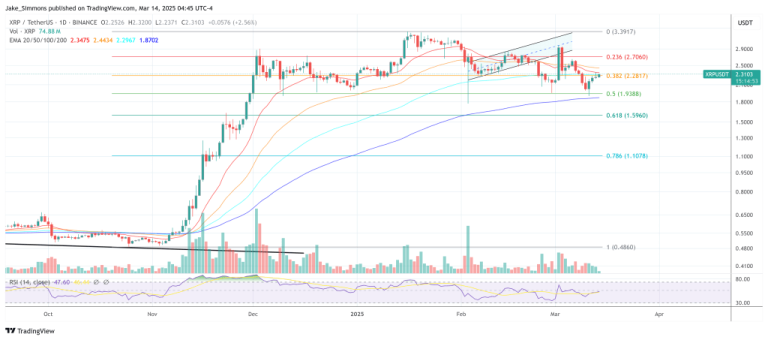Storing your digital assets is an essential part of your crypto journey, and non-custodial wallets are becoming more prevalent as the field of decentralized finance continues to boom.
Non-custodial wallets, also known as self-custody wallets, allow users to take full ownership of their assets.
In the following guide, we will examine some of the best ways to ensure that your interaction with cryptocurrencies is secure and seamless.
But first, let’s set some definitions straight.
Quick Navigation
What is a Non-Custodial Wallet?
The name (non-custodial) comes from the fact that the wallet provider itself doesn’t have custody of your crypto but rather serves as an interface that enables you to access it easily and conveniently while also allowing third-party integrations.
This is the main difference between custodial and non-custodial solutions. With custodial wallets, which are also often centralized, the company offering the services safeguards and keeps your crypto. For instance, centralized cryptocurrency exchanges are often custodians, which means that they keep your crypto for you, and you do not hold the private keys.
This is where one of the industry’s most popular sayings comes into play—“not your keys—not your Bitcoin.” Of course, this can be extended to every other cryptocurrency.
Non-custodial wallets allow you to retain full ownership of your assets, and you are the one who needs to store your private keys. Of course, this comes with its risks and challenges.
If you choose to use a non-custodial wallet, you’re solely responsible for protecting your private keys. If, for any reason, you lose access to them, then you lose access to your funds, and there is nothing the wallet provider can do to help you retrieve them – remember, it’s just an interface.
Non-custodial crypto wallets are not suitable for anyone who cannot handle the sole responsibility of storing and safeguarding their private keys.
With that said, here are the best non-custodial cryptocurrency wallets to consider this year.
Best Hot Non-Custodial Wallets
Hot wallets are generally regarded as software solutions that don’t come with supporting hardware. To use them, you have to stay connected to the internet.
MetaMask – Best Non-Custodial Wallet for Ethereum
MetaMask is a veteran in the browser extensions’ wallet field, and it was launched in 2016 by the market-leading blockchain technology company ConsenSys.
Since then, it has grown to become the most popular non-custodial wallet. This is largely because it was one of the only available options during the massive DeFi boom in the summer of 2020, which later came to be known as the DeFi summer.
But apart from DeFi, another main use of MetaMask has been integrating with popular marketplaces such as OpenSea for buying and selling NFTs.
MetaMask allows users to store ERC-20-based tokens, but it can also be integrated to function on other EVM networks, such as the BNB Chain, Polygon, Optimism, and Arbitrum.
The crypto wallet functions as a browser extension that allows users to interact with decentralized apps (dApps) built on Ethereum and other EVM-compatible networks.
It also has an in-house swap feature that allows users to quickly exchange one token for another without accessing a decentralized exchange (DEX).
MetaMask takes absolutely no ownership or custody of your seed phrase and private keys, providing you with complete sovereignty over your assets.
Electrum – Best Non-Custodial Wallet for Bitcoin
Electrum is a Bitcoin-only, non-custodial wallet that has undoubtedly stood the test of time. It is one of the longest-standing hot wallets in the industry.
It’s an open-source application available for PCs, Macs, Linux, and Android devices. It supports multi-signature, hardware wallets, and more.
The wallet was founded in 2011 and released under the MIT License. This means that other developers can use the source code and fork it to create similar applications. Thousands have already done so, so it’s important to follow the official link.
The prime feature of Electrum and what makes it different from other non-custodial wallets is its strict focus on Bitcoin. It takes existing security standards of the Bitcoin protocol, such as multi-sig, and makes them much easier to employ. For other Bitcoin options, check the other best Bitcoin wallets.
That said, it’s not as flashy as other solutions, and it’s perhaps tailored to those who already have some existing knowledge and at least a slight technological background. Some of its features include:
-
- Support for the Bitcoin Lightning Network
-
- You can control multiple wallets from the mobile application.
-
- You can integrate it with hardware wallets.
Phantom Wallet – Best Non-Custodial Wallet for Solana
Phantom Wallet is undoubtedly the most popular self-custody wallet for users of the Solana network. Its popularity is largely due to its multi-purpose design, high performance, and user-friendly overall design.
It comes as a browser extension (much like MetaMask) but also has a fully developed and easy-to-use mobile application available for both iOS and Android devices. In fact, the mobile version is very intuitive, and it allows users to quickly switch between different tabs to monitor their NFTs, funds, settings, and much more.
Don’t let the simple UX fool you, though, because Phantom comes with a myriad of different features, including:
-
- Staking
-
- Swap
-
- Cold wallet integration
-
- Self-custody storage and more.
This has made it the top Solana wallet, but it is also one of the best non-custodial wallets altogether.
Trust Wallet – Great Self-Custody Wallet for Multiple Networks
Trust Wallet is an open-source and decentralized crypto wallet application that offers users a wide range of options to buy, sell, and store digital assets.
Trust Wallet currently supports over 35 blockchains and thousands of different digital assets. The wallet has in-house buy, swap, and exchange features that allow users to easily trade one crypto asset for another or buy crypto with fiat.
Users can also interact with dapps on Ethereum and more than 14 other EVM-compatible ecosystems without compromising security and privacy. The wallet is available on iOS, Android, and desktop devices.
In July 2018, Trust Wallet was purchased by the leading cryptocurrency exchange, Binance.
MyEtherWallet – The Veteran Ethereum Wallet
MyEtherWallet (MEW) is a veteran in the space, and it’s geared more toward users with a technical background. It’s a free, client-side interface designed to help users with the Ethereum blockchain. It’s very easy to use, albeit a bit more technical than the rest of the list.
Another thing to consider is that it’s entirely open source. Like many of the other wallets on our list, MEW also supports additional Ethereum-compatible networks. These include Ethereum Classic (ETC), the BNB Chain, Polygon, and so forth.
It is designed to deliver cross-chain swap capabilities, where users can swap between Ether and Bitcoin, Litecoin, or Dogecoin. If you decide to swap from the interface directly, it works with some decentralized exchange aggregators, such as 1inch, to deliver the best rates.
MyEtherWallet also has an app version to its web wallet; a detailed guide can be found here.
Atomic Wallet
Atomic Wallet is also a well-known non-custodial solution for those seeking to store their funds on-chain. It supports multiple networks, including Ethereum, Solana, the BNB Chain, Polygon, Fantom, and Avalanche.
Users can interact with various decentralized applications on the number of supported blockchains, ranging from lending protocols to non-fungible token marketplaces and much more.
It’s worth noting that the wallet has integrated an in-house swap function through its partnership with Simplex. The latter is a centralized on-ramp fiat platform. This suggests that you would have to go through a quick KYC verification if you want to withdraw fiat. There are also fees associated with these transactions:
-
- 5% flat fee with a minimum of $10 for buying crypto through Simplex.
Coinomi: The Multi-Language Option
Coinomi is another popular choice with a rich history. This multi-currency wallet was launched in 2014, making it one of the oldest non-custodial wallets in the market.
It supports about 125 networks and more than 1,770 digital assets, some of which can be transferred through SegWit to make transactions lighter. Coinomi provides users with direct access to dApps, multiple Web3 projects, its in-house exchange, and direct token swaps.
Coinomi has tight security features as well and is available to a wide range of users from multiple operating systems and devices, including Android, iOS, Windows, macOS, and Linux. It is also available in eight different languages.
Coinomi is also one of the best wallets for Tether (USDT).
Exodus
Exodus is one of the best non-custodial wallets designed to run on Windows, Linux, Mac, as well as Android and iOS devices. The wallet is primarily focused on users who have never interacted with crypto before, hence, it offers a slick, easy-to-learn interface.
Exodus is designed to provide portfolio management and crypto exchange services. Thus, users can store, manage, and trade cryptocurrencies from a single interface. It supports more than 130 different cryptocurrencies, including BTC, ETH, BNB, SOL, and DOGE.
Another feature of the wallet is that it offers users a risk-free way to make money off their crypto. When users make crypto-to-crypto purchases, Exodus gives them a percentage of the profit. The reward is sent directly to users’ accounts.
Exodus is also featured in our Cardano wallets list.
Coinbase Wallet
As the name suggests, Coinbase Wallet was created by the leading US-based cryptocurrency exchange Coinbase and has grown to become a preferred wallet for a range of reasons.
First, the Coinbase Wallet offers a familiar user experience to existing solutions, making the transition very easy for those who already have a self-custody wallet. At the same time, however, it carries the reputation of the Coinbase brand, which – with millions of users across the world – is a factor to consider.
The wallet was launched in 2018 and has become widely recognized as one of the easiest-to-use self-custody solutions on the market.
Coinbase Wallet supports Ethereum and all EVM-compatible blockchains and can be installed as a Chrome extension, just like MetaMask. Unlike MM, however, the Coinbase Wallet extension also supports Solana and SPL tokens.
Coinbase Wallet also comes with a fully-developed mobile application that is convenient, quick, and easy to install. Beyond a seamless user experience, the mobile app also adds support for holding some major non-EVM compatible tokens such as Bitcoin, Dogecoin, Litecoin, Ripple, and more.
It operates independently of its parent company in a way that it doesn’t require any sort of registration, KYC, or a Coinbase account. If you do wish, you have the option of connecting your Coinbase Wallet to a Coinbase custodial account, providing users of Coinbase’s centralized exchange with the option to transfer assets from one to another quickly. This is 100% optional.
Best Non-Custodial Hardware Wallets
Cold wallets, unlike hot wallets, are typically hardware solutions that don’t have to stay connected to the internet at all times. This is why they can be more secure.
You can read our guide on hardware wallets for more suggestions.
Trezor Safe 3 and Safe 5
Trezor is company that produces cold wallets that support a very large range of different cryptocurrencies, including BTC, ETH, SOL, and much more.
Some of the most popular options include the Model T and Safe 3. The latter is a bit less expensive and features an enhanced security chip.
The Trezor Safe 3 is largely-considered as the best hardware wallet currently, although some users prefer the Model T because of the touchscreen interface, making the device more dynamic.
For more similar wallets, we have a list of desktop wallets.
Ledger: Nano S Plus and Nano X
Ledger also ranks among the go-to options for those looking to protect Solana tokens alongside a wide spectrum of other crypto assets. Its Nano X and Nano S hardware wallets both work seamlessly with SOL, allowing users to store, buy, trade, and stake directly via the Ledger Live application.
Both options have strong security features, generating a 24-word seed phrase that stays offline. Ledger wallets require a password or PIN; private keys never leave the device’s secure element. Ledger’s design often appeals to users who value a compact wallet, while its support for numerous tokens suits those building broader crypto portfolios.
Cypherock: X1
Cypherock X1 is a hardware wallet that supports multiple blockchains, including Bitcoin, Ethereum, and Solana, and offers up to four separate wallets within the same device.
Each wallet can maintain its own seed phrase, providing a straightforward way to diversify portfolios. It also has a vault, which includes an ATECC608A security component, while the NFC cards rely on EAL6+ secure elements.
On top of that, Cypherock uses Shamir’s Secret Sharing, a method that splits private keys into five shards, distributing them across four encrypted NFC cards and one primary vault device. No shard reveals a full key, strengthening security by removing any single point of failure. The vault stores only part of each private key, and the rest resides on individual cards, making unauthorized access more difficult.
Tangem Wallet
Tangem offers a card-like hardware wallet that functions more like a convenient tap-to-connect device than a standard USB stick
It supports over 6,000 cryptocurrencies and 80-plus blockchains, including Bitcoin, Ethereum, Solana, and Cardano.
Rather than plugging into a computer or displaying information on a small screen, each Tangem card uses Near Field Communication (NFC) to link with iOS or Android smartphones. That means users can send, receive, and manage their assets in a single step by tapping the card to their phone and connecting to DeFi apps through the Tangem interface.
Tangem wallets typically ship in sets of two or three identical cards, which serve as backups for one main wallet. These water- and dust-resistant cards feature a Common Criteria EAL6+ certified chip to create and safeguard private keys directly on the device.
But beware: losing all the cards means losing your funds and can only be retrieved if you have saved your seed phrase, which is only shown once, so it’s important to write it down and store it somewhere safe.
Tangem products incur no extra usage fees beyond normal network costs, and pricing runs from $60 for a three-card set to $135 for the Tangem Ring Suite.
What is the Best Self-Custody Crypto Wallet for You?
Choosing the best non-custodial crypto wallet for you can be a difficult task, considering the many options available. However, it is important to consider certain factors before deciding which wallet is best suited for your needs and level of experience.
Perhaps finding an answer to the following question will guide you to the best choice:
-
- Are you an expert or new to crypto?
-
- Do you want a wallet with an in-house swap feature and a dApp browser?
-
- Do you want a wallet that works best on mobile, desktop, or both?
-
- What type of cryptocurrencies are you looking to store and invest in?
Remember, though, that with non-custodial wallets, you’re solely responsible for the safety of your funds, so security should always be your top priority to ensure that you safeguard your assets at all times.
This is why you should definitely check out our extensive guide on crypto security.
The Pros and Cons of Non-Custodial Cryptocurrency Wallets
Self-custody wallets come with a host of benefits that a lot of cryptocurrency-native users prefer, but they also have their disadvantages. All of these are entirely subjective and depend on the user’s preferences, as well as technical background.
Pros:
-
- Complete control over private keys
-
- Ability to interact with native DeFi applications
-
- No KYC or any kind of verification process
Cons:
-
- A lot more challenging to use compared to custodial solutions
-
- Greater risk: losing or mistakenly recording your seed phrase means you can never access your funds again
Frequently Asked Questions
Is a non-custodial wallet safe?
Yes, non-custodial wallets are generally safer from a theoretical point of view. That’s because the user is the only one with access to their private keys. However, they do require a bit more technical knowledge compared to centralized solutions.
Is Binance wallet a non-custodial wallet?
Yes, the Binance Web3 wallet is a self-custody solution, and it’s not necessarily connected to the centralized platform unless the users decide to connect them.
Should I use a non-custodial wallet?
Typically, you should use whatever you are comfortable with. However, a non-custodial wallet is generally regarded as the better and safer choice compared to its centralized counterpart.
Is Ledger non-custodial?
Yes, Ledger wallets are non-custodial. The company doesn’t store any information related to your seed phrase and private key.
Best Non-Custodial Wallet: Conclusion
Choosing the best self-custody wallet takes time, and that’s only natural. After all, it’s arguably the most important component of your journey into the wild realm of cryptocurrencies.
Selecting a wallet will inevitably come down to your personal preferences, so it’s highly recommended that you test out a few different solutions and see which one best suits your needs.










